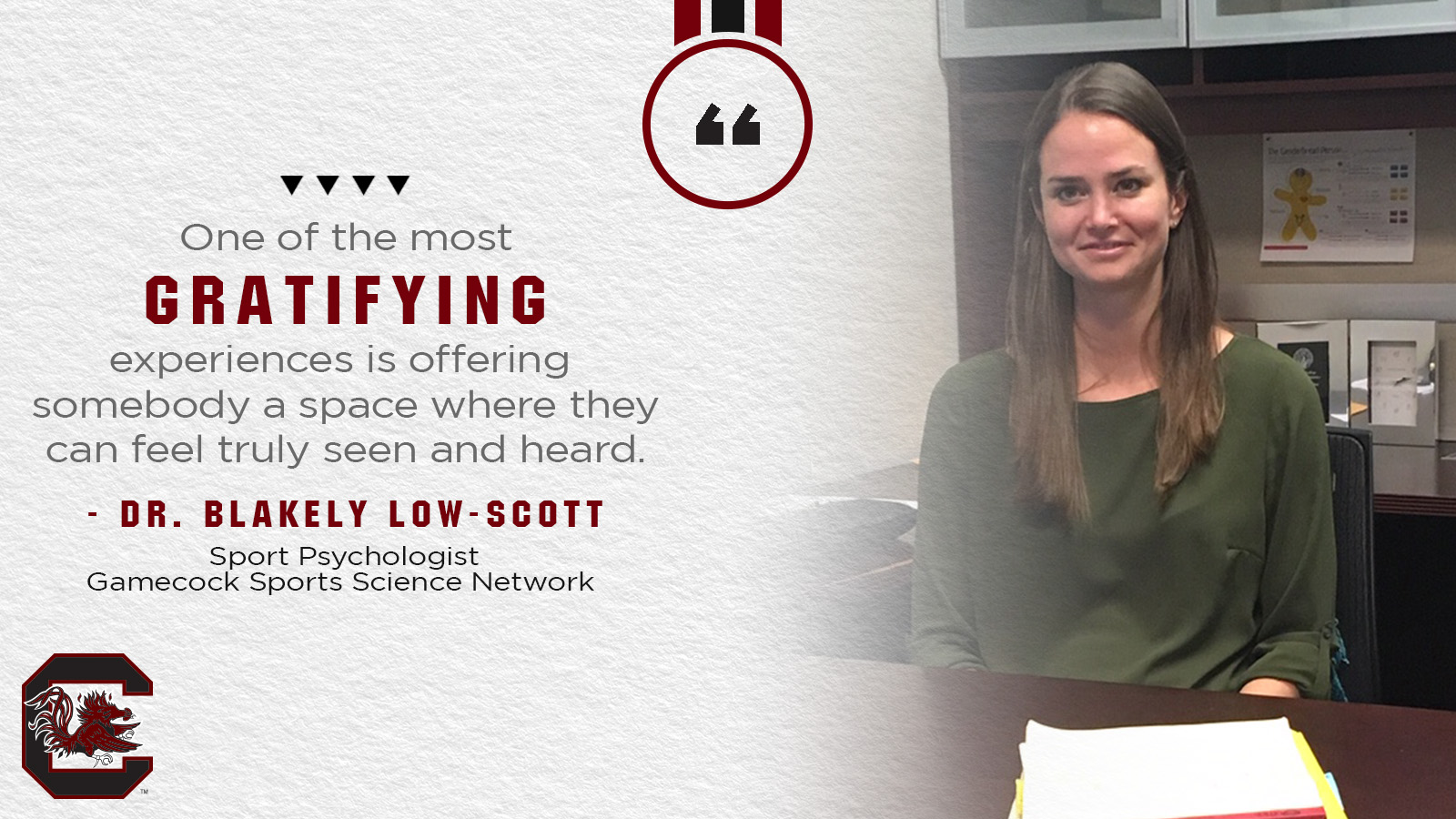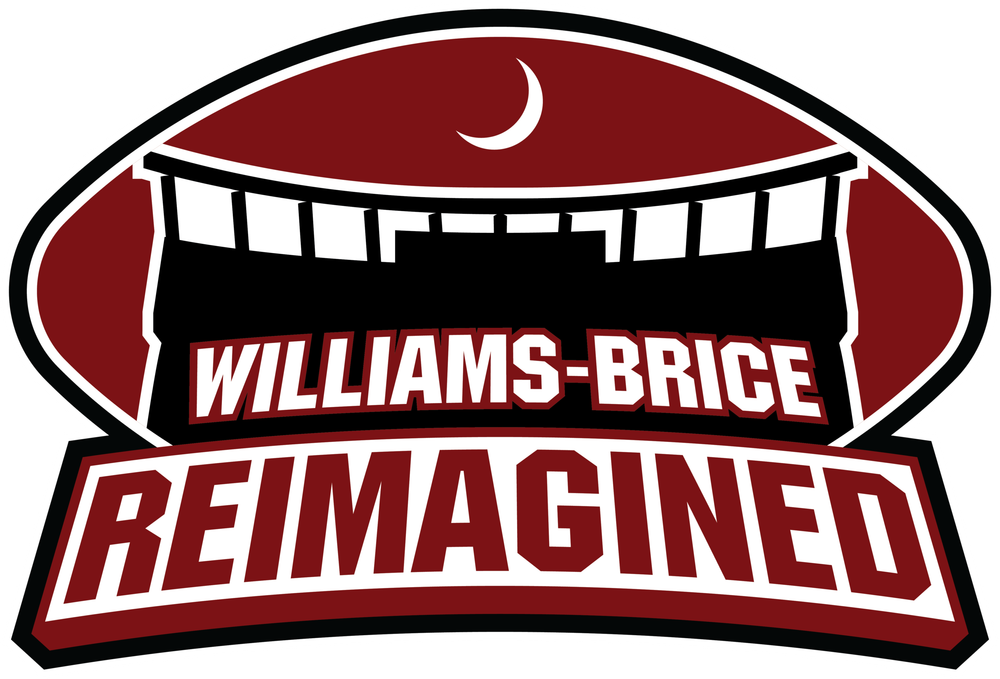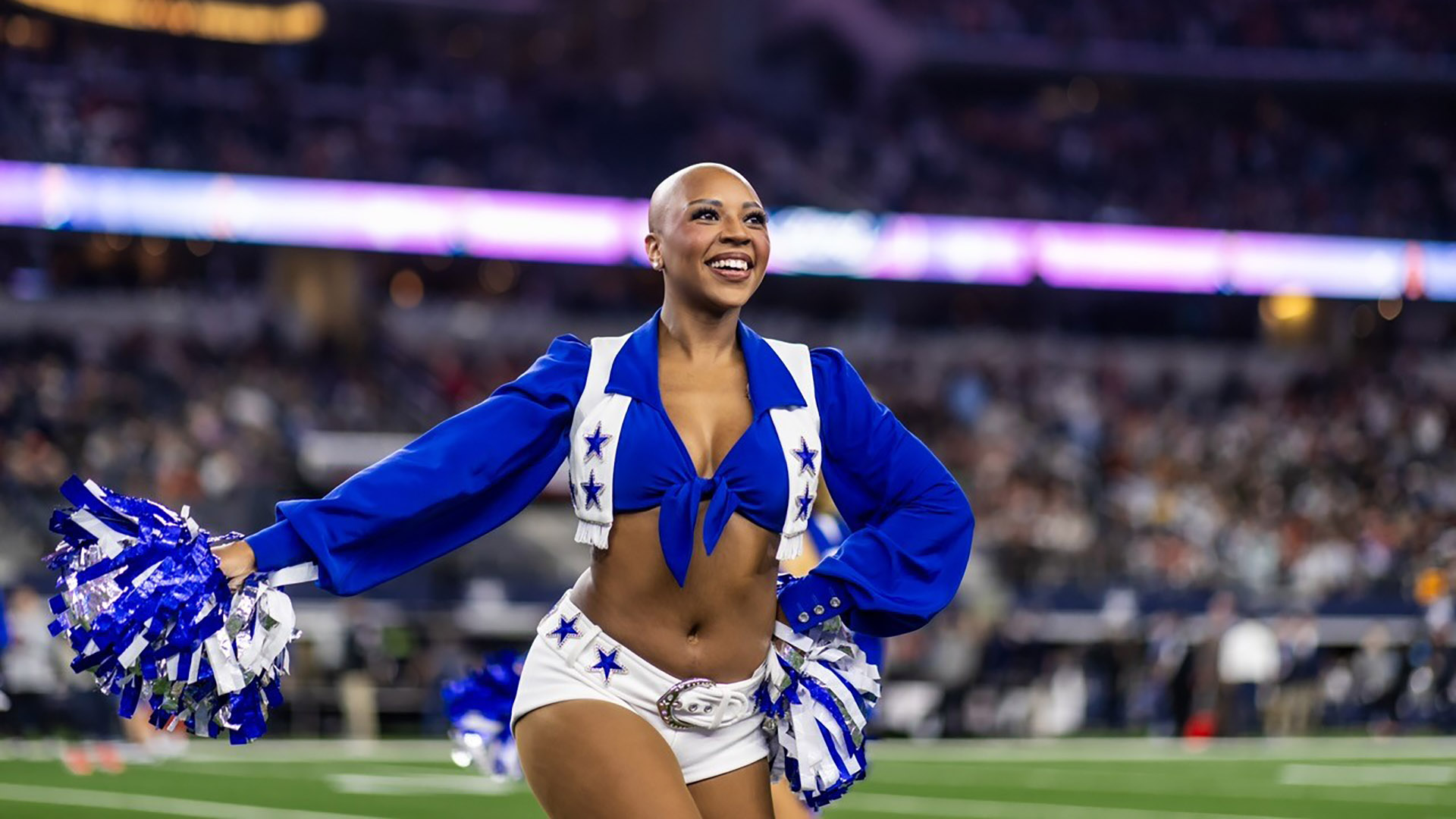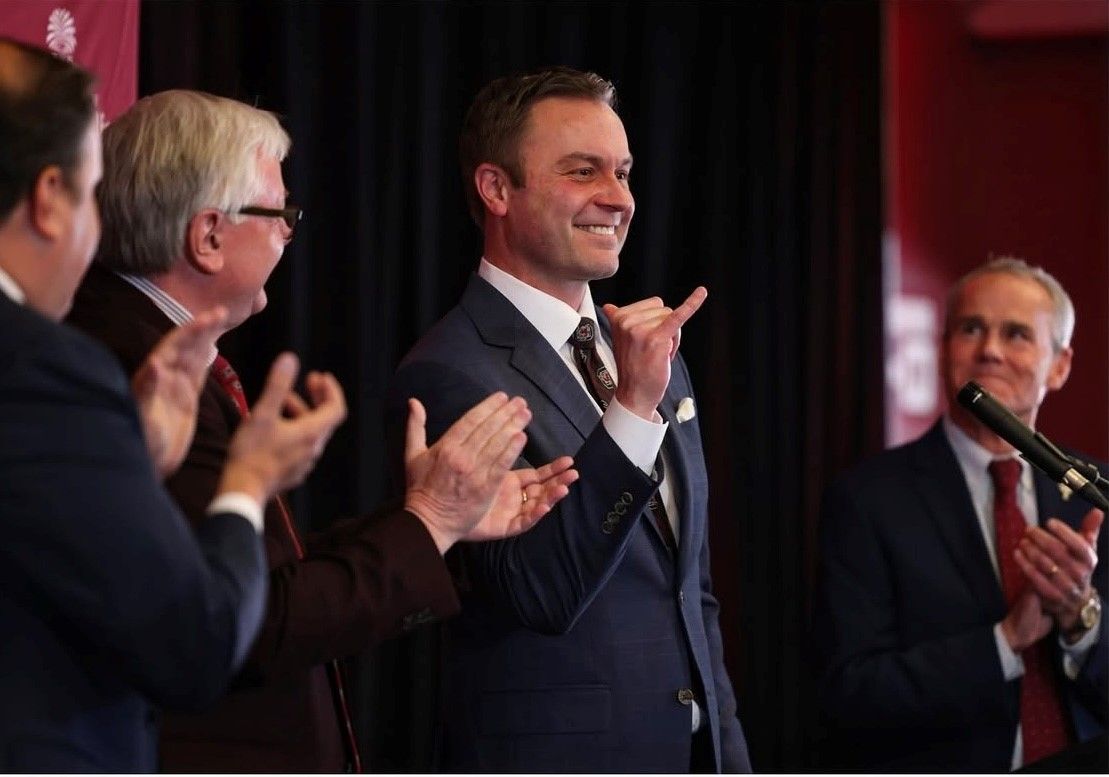
Gamecock Sport Science Network Spotlight: Dr. Blakely Low-Scott
Many athletes will hit a slump or run into some roadblocks during their career, and many times it can be a psychological hurdle that needs to be overcome to get them back to performing their best. That’s where South Carolina’s Sport Psychologist, Dr. Blakely Low-Scott, can make an impact.
“I really want to build a culture here where individuals feel comfortable just saying, ‘I want to check in and see if I can adjust something.’ It’s a collaborative effort,” Dr. Low-Scott said. “Beyond that, sport psychology is most effective when we can work in systemic ways. If I can be more linked in with our athletic team partners, working with coaching staffs, and looking to see how we can help the individual in the context of their system, that’s when sport psychology works best.
“One of the most gratifying experiences is offering somebody a space where they can feel truly seen and heard. When we have that opportunity, it’s unique. Often times, we’re holding some part of ourselves back, but when we feel like we don’t have to edit who we are, then that’s the space where we can be the most creative in finding a way to move forward in a way that will work better for us.”
The San Antonio, Tex., native played soccer at Davidson and graduated in 2010 with a degree in psychology. She later earned her master’s and Ph.D. in counseling psychology from Texas Tech. Dr. Low-Scott joined the Gamecock Sports Science staff late last spring after serving in a similar role at the University of Arkansas. How she differs from some of the other providers on South Carolina’s mental health team is that her role is dedicated solely to peak performance.
“I’m really big on sending the message that you don’t have to have a problem in order to come in here.”
– Dr. Blakely Low-Scott
“I’m a licensed psychologist and have been trained to handle any clinical situations going on with our student-athletes, but what distinguishes me from our other providers is that I’m brought in to elevate the sport performance of our student-athletes,” Low-Scott said. “While our other providers focus mainly on general concerns like anxiety or interpersonal difficulties, my job is to help them develop skills and self-awareness to reduce the chances that they will feel stuck at a plateau in their performance. I help them get a sense of what’s going on and how we can make it work better.”
Dr. Low-Scott said there is not a one-size fits all approach in helping student-athletes get over those performance related hurdles.
“A lot of the work involves utilizing an outside perspective to build the student-athlete’s own self-awareness,” Low-Scott said. “Athletes can get stuck in a situation where they feel like they’re banging their head against the wall. Sometimes, I’m able to ask questions that help them connect the dots between things they may not see as being related. Once we can put a finger on a pattern or an insight, the student-athlete has new options about how to approach difficulties and feel confident in their abilities again. Together, we can find ways to adjust their approach or thinking pattern or give them techniques to manage their anxiety or stress.”
While it is becoming more common to talk about mental and emotional wellness as it relates to student-athletes, while also trying to take away the perceived stigma in doing so, there is still work to be done.
“Student-athletes are more open to talking nowadays, but that’s not to say the stigma is gone,” Low-Scott said. “I think this generation has grown up with the idea that your athletics department is going to have psychologists and psychiatrists on staff. When I played, we didn’t have that. So, just the fact that these resources are more available, it normalizes some of that. It’s not enough, though. We have to be visible and involved in the athletic department so these student-athletes see our faces more as someone they can go talk to.
“I’m really big on sending the message that you don’t have to have a problem in order to come in here – if there is something that can work better in your life, that’s a great reason to check in. For a lot of the athletes I work with, they benefit from a regular check in because that’s where the self-awareness emerges.”












